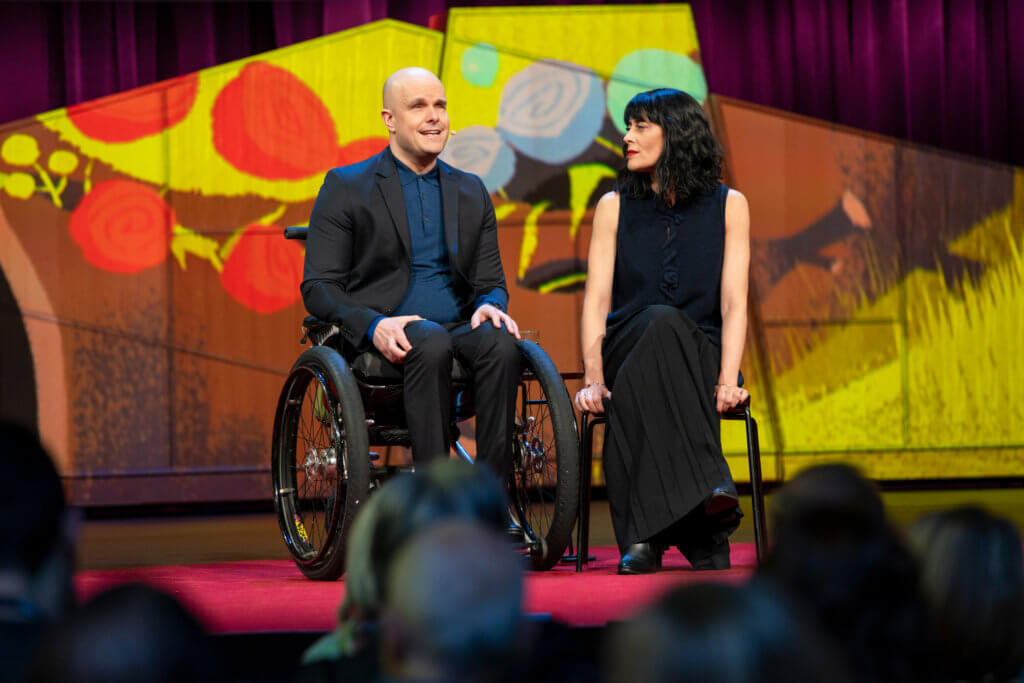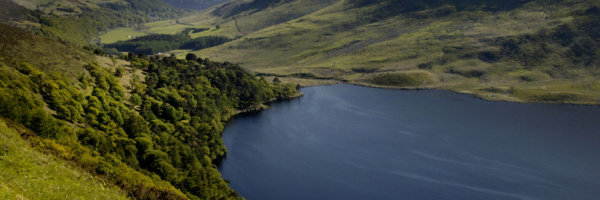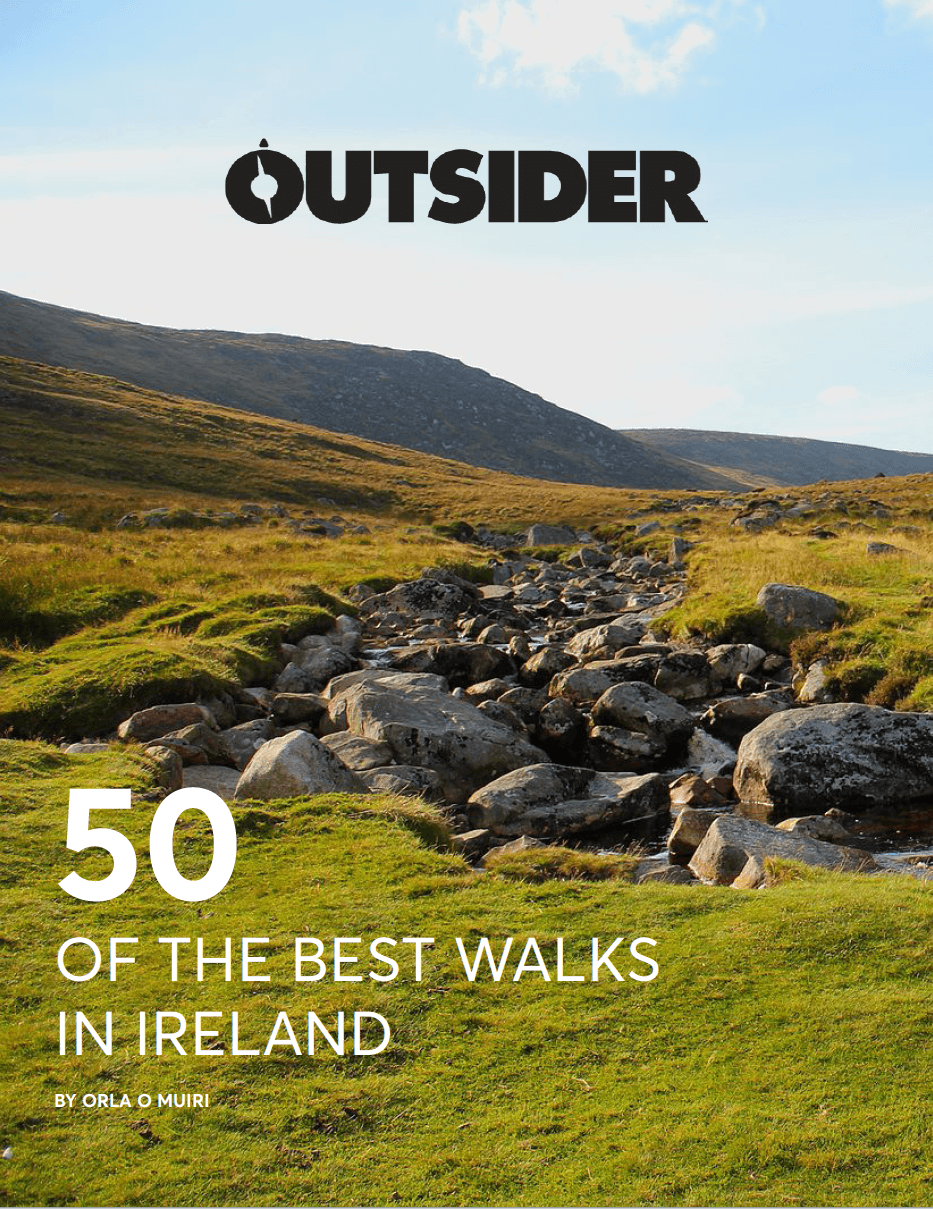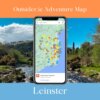Mark Pollock lost his sight at age 22. In the following 10 years, Mark set about totally rebuilding his identity. During that time, he ran six marathons in seven days in the Gobi desert and completed marathons at the North Pole and Everest Basecamp. He was the first blind person to walk to the South Pole. However, things took an unexpected turn in 2010 when Mark fell 25 feet from an upstairs window, leaving him paralysed from the waist down.
Since the accident, Mark and his partner, Simone George, have dedicated their lives to exploring a cure for paralysis. They have worked with some of the world’s top scientists and taken part in pioneering studies in a bid to one day have a world without wheelchairs.
Mark and Simone recently hosted a Ted Talk where they spoke in detail about their experiences. They talked about dealing with those dark days after the accident and why they have embarked on this journey to find a cure for paralysis. Their story is heart-breaking and uplifting in equal measure. Together, they have explored the frontiers of spinal cord injury recovery, combining an innovative electrical stimulator from NeuroRecovery Technologies to super-charge Mark’s nervous system while walking hundreds of thousands of steps with the help of his Ekso Bionics robotic legs.
Mark and Simone are a force to be reckoned with and their progress so far is inspiring. Here we round up just a handful of learnings from their recent Ted Talk, which you can watch in full here.

‘He who has a will to live can bear with almost any how.’
“I met Mark when he was just blind … When I met Mark, he asked me to teach him to dance and I did. They were long nights, talking, becoming friends and eventually falling for each other. Mark had lost his sight when he was 22, and the man that I met was rebuilding his identity, the cornerstone of which was this incredible spirit that had taken him to the Gobi Desert where he ran six marathons in 7 days, and to marathons at the North Pole and from Everest Base Camp. When I asked him why this high-octane life, he quoted Nietzsche ‘He who has a will to live can bear with almost any how.’
“He had come across the quote in a really beautiful book called Man’s Search for Meaning by Viktor Frankl, a neurologist and psychiatrist who had survived years in a Nazi concentration camp. Frankl used this quote to explain that when we cannot change our circumstances, we are challenged to change ourselves.”
– Simone
“The why for me was about competing again because pursuing success and risking failure was simply how I felt normal.”
“I finished the rebuild on the 10th anniversary of losing my sight. I took part in a 43-day expedition race in the coldest, most remote, most challenging place on earth. It was the first race to the South Pole since Shackleton, Scott and Amundsen set foot there 100 years before. Putting the demons of blindness behind me with every step towards the Pole offered me a long-lasting sense of contentment. As it turned out, I would need that in reserve as one year after my return, in arguably the safest place on earth, a bedroom at a friend’s house, I fell from a third storey window onto the concrete below.”
– Mark
Nikki Bradley’s Guide To Staying Positive
“Optimist, realist or something else.”
High on morphine, lying in intensive care and facing the prospect of being blind and paralysed, Mark was trying to make sense of what was going on. He reached for his phone and began to write a blog post entitled ‘Optimist, realist or something else.’
“It drew on the experience of Admiral Stockdale who was a POW in the Vietnam War. He was incarcerated and tortured for years. His circumstances were bleak, but he survived. The ones who didn’t survive were the optimists. They said, ‘We will be out by Christmas.’ Christmas would come and Christmas would go and it would come again. When they didn’t get out, they would be disappointed and many of them died in their cells. Stockdale was a realist. He confronted the brutal facts of his circumstances while maintaining a faith that he would prevail in the end.”
– Mark
“How do you resolve the tension between acceptance and hope?”
“Over 16 months in the hospital, Simone and I were presented with the expert view that hoping for a cure had proven to be psychologically damaging. It was like the formal medical system was cancelling hope in favour of acceptance alone. But cancelling hope ran contrary to everything we believed in. Yes, up to this point in history it had proven impossible to find a cure for paralysis, but history is filled with accounts of the impossible made possible by human endeavour. The kind of endeavour that brought explorers to the South Pole at the start of the last century and the kind of human endeavour that will take adventurers to Mars in the early part of this century. So, we started asking ‘why can’t that same kind of human endeavour cure paralysis in our lifetime?’”
– Mark
“How should we respond? Optimist, realist or something else?”
“I think we have come to understand that the optimists rely on hope alone and they risk being disappointed and demoralised. The realists, on the other hand, they accept the brutal facts and they keep hope alive as well. The realists have managed to resolve the tension between acceptance and hope by running them in parallel. And that’s what Simone and I have been trying to do over the last couple of years. I accept the wheelchair; it is almost impossible not to and we are sad sometimes for what we have lost. I accept that wheelchair users can and have lived fulfilling lives despite the nerve pain and the spasms and the infections and the shortened lifespans. I accept that it is way worse for those who are paralysed from the neck down and for those who rely on a ventilator to breathe and for those who don’t have access to adequate free healthcare.
“So that is why we also hope for another life. A life where we have created a cure through collaboration. A cure that we are actively looking to release from university labs around the world and share with everyone who needs it.”
– Mark
“Acceptance is knowing that grief is a raging river.”
“Acceptance is knowing that grief is a raging river and you have to get into it because when you do, it carries you to the next place. It eventually takes you to open land, somewhere where it will turn out OK in the end.”
– Simone
Watch the full talk below:
Like this? Check out these other articles:












Pingback: Hiking Pants for Men & Women: 8 of the Best | Outsider.ie